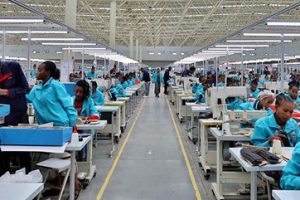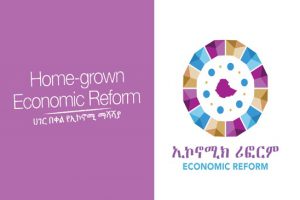
1.Introduction: Saving is abstention from current consumption and waiting for future consumption. It is income less consumption. You have to earn income, but postpone unnecessary consumption. This requires hard-work and frugality. One uses only as much money or food as necessary. A frugal person avoids conspicuous consumption or buying expensive goods and services. Such disciplined behavior enables society to devote resources to capital formation.
To the extent that people are not concerned about investment, they may at any time ‘dis-save.’ They snatch pleasure at the expense of investment. By so doing, they divert resources away from ‘replacing and maintaining capital’ to present consumption. When we forgo current consumption in favor of capital formation we add to the future production possibilities. The basis of both savings and consumption is income. The source of income is the capacity to produce goods and services.
When these goods and services are exchanged in the market income is generated. However, the market requires economic infrastructure, such as roads, for the movement of inputs and outputs. The inputs are factors of production such as labor, capital, land and managerial capacities. These factors produce outputs for the market. It is the role of the private sector to coordinate these factors in order to produce goods and services for the market.
Ideally, the role of the government is to provide economic and social infrastructure. However, where the private sector is not capable of producing goods and services the government may intervene and supply these services in addition to defense, security and macroeconomic management. In doing so the government enables hardworking frugal individuals to save and enhance capital formation.
2. Performance in Resource Mobilization: Saving is a domestic source of capital for investment. There is an entrenched impression that poor countries could not save anything. But, this was a wrong impression. In fact, poor countries could mobilize the bulk of their investment capital through savings. Domestic savings financed a large share of total investment in poor countries. This is considered as a dramatic achievement. A high saving rate is achieved at low levels of income. This is a heavy sacrifice by poor people.
For the individual poor, it means setting asideincome usually through tax. Such income could have been spent on meeting basic necessities. These necessities include enough food, extra clothing, modern shelter and health facilities. For the government of poor countries, saving means postponing expenditures for welfare and other pressing recurrent needs. This choice is a delicate balance. Should a government choose to postpone its services where there are regional and cultural needs to be addressed by it?
Political and national survival may hinge on these choices. In the past several decades, despite obstacles, poor countries have made impressive efforts to raise savings. They had achieved high rates of capital formation. This performance is attributed partly to the ability of governments to collect revenues. It is also due to the growth of banking and other financial institutions. Increases in profitable reinvestments have contributed to rising levels of capital.
The ability of governments to tax is important because it reflects a ‘growing sense of national community.’Government raises fund for investment and for increased social services such as welfare, education and health. There has been progress in developing countries in creating commercial banks, investment corporations, savings and credit associations, cooperative financing institutions, and stock exchanges. They have formed successful development banks to promote industrial projects, to finance agriculture, and to promote low cost housing and ownership. Low income countries have succeeded in raising savings as a proportion of the GDP. This created opportunities for profitable investment and for import replacement.
These opportunities have been assisted by government policy, by the growth of entrepreneurial groups, by the adoption of modern managerial skills, by the introduction of modern technology, and by the availability of foreign exchange for investment. Most of the developing countries saved a large part of their income for the purpose of investment. The proportion of income allocated for savings or the ratio of savings to income is higher today than ever before.
This means that these countries have invested more and more of the growth in their income for further expansion of the economy. It also means they have refrained from consuming all their income. This ability to refrain from unnecessary consumption is important for development and for progress toward self-sustaining growth. Government investmentin economic enterprises totally depends on tax paid byits poor citizens. Such revenue is bound to be wasted by inefficiencies observed in government corporations. The role of government should, therefore, be limited to the building and maintenance of public infrastructure, defense and security.
By delivering these services efficiently, the government could assist the private sector and raise more revenue from it. It should, therefore, encourage private entrepreneurship. The record was disappointing where the government owned the factors of production such as land, capital and managerial services. These should essentially be handed over to the private sector because of its proven efficiency. Efficiency and frugality mentioned earlier are the sources of savings by the poor people.
They do not waste what they sweated for. Governments of poor countries should be responsible for efficient utilization of savings made by poor citizens. Government agencies, including banks, are responsible for productive utilization of such savings. These people saved only by postponing consumption of part of their income.
3. Conclusions and Recommendations:
3.1 Encourage the Poor to Save More: It is pointed out that the bulk of the investment capital originates from savings made by the poor people in developing countries. Their savings financed a major share of total investment in these countries. This is a witness to the sacrifices made by poor people to save most of their income by postponing present consumption. It is, therefore, recommended that the government should honor sacrifices made by the poor in a variety of ways. One way is to raise interest payment on savingsmade by the poor. The other way, but a cheaper one, is to give certificate of recognition of the efforts of the poor clients of the banks. Such token measures encourage the poor to save more.
3.2Encourage Borrowing by the Poor: Currently, the small and micro enterprises borrow money at exorbitant interest rates. This is very discouraging for the poor. Also, the loan guarantee requirement is a disincentive for the poor who want to borrow. Therefore, banks and financial institutions should encourage the poor hard working people to borrow money for expanding their businesses. The encouragement may include lending at low rate of interest. The guarantee requirement should also be less stringent.
3.3 Economically Oriented Banking and Financial Services: Commercial banks, investment corporations, savings and credit associations, cooperative financing institutions, and stock exchanges have been expanding in the developing countries. Development banks have succeeded in the promotion of industrial, agricultural and housing projects. But, there are also failures in the lending process. Most loans were diverted from satisfying the needs of the poor.
They were politically influenced. It is, therefore, recommended that the government should design credit policy based on the needs of the poor. Measures should be seriously taken to recover bad debts from politically directed projects. Economic criteria, not political affiliation, should guide the process of lending scarce resources.
3.4Increase the Efficiency to Collect Tax:Poor countries achieved high rates of capital formation through domestic savings. This was possible due to governments’ ability to collect revenues and due to creation and expansion of banking and financial institutions.It is recommended that the government should develop its capacity to efficiently collect tax revenues. These revenues are used for the provision of economic and social services to the community. This creates a “growing sense of national community.”
3.5 Provide Free Government Services: Government services such education, heath, and basic services have to be provided by the government free of charge. These services could also be provided by the private sector, but they are expensive for the poor. It is, therefore, recommended that the government should provide basic services to the poor in order to reduce the burden of cost on them. Those who save are much more encouraged by the free provision of such services.
3.6 Divestment of State Corporations: Government is an inefficient economic actor as compared to the private one. Government directors of projects have succeeded in a self-sustaining loss of public funds. They never refrain from unnecessary consumption. They never seem to have heard of the need for efficiency. The maximum penalty they get for that is removal from projects with remunerations and promotions. Government depends for its operations on tax collected from the poor.
It is unethical if such revenue is wasted by inefficiencies of public sectorsas exposed by auditors. The proper role of the government should be assisting the private sector that operates the economy efficiently. Success is a misnomer for failure in the public sector. It is, therefore, recommended that the government should refrain from inefficient economic operations. It should also withdraw from economic operations by divesting or privatizing state owned enterprises in part or in full.
Instead it should assist the privates sector by providing it with the necessary support and economic and social infrastructure. Above all, it needs to guarantee peace and security required by corporate business operations in the country. Small and micro businesses operated by the poor also benefit from peace and security
The Ethiopian Herald Sunday Edition, May19/ 2019
BY GETACHEW MINAS





